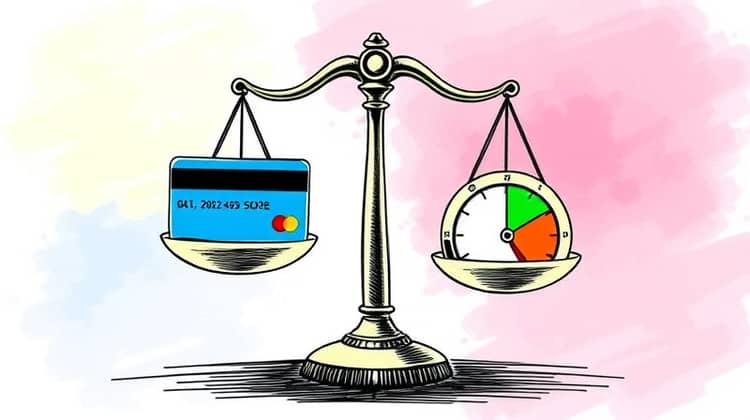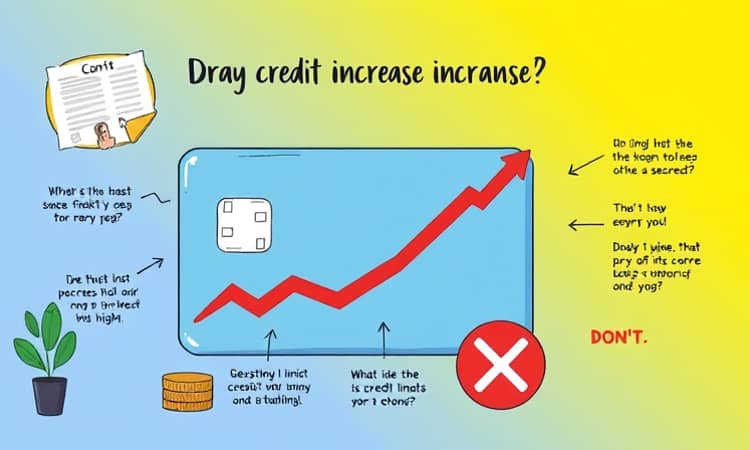Requesting a credit limit increase can seem daunting for many, but it is a crucial financial decision that can significantly impact your financial health. By understanding the nuances of this process, consumers can make informed decisions that align with their financial goals and circumstances.
In this article, we'll explore the dos and don'ts of requesting a credit limit increase, as well as the implications such an increase can have on your credit score and overall financial stability.
Why Consider a Credit Limit Increase?

Many individuals struggle to manage their finances within strict credit limits, which can lead to unnecessary financial stress. One option to alleviate this pressure is to request a credit limit increase, which can provide more room for flexibility in spending.
A higher credit limit can also enhance your credit utilization ratio, a key factor in determining your credit score. When you maintain a lower percentage of credit utilization relative to your total available credit, it reflects positively on your creditworthiness to lenders.
Lastly, requesting a credit limit increase can serve as a strategic move if you're planning a significant purchase. Whether it's funding a home renovation or planning a vacation, having access to more credit can help manage cash flow more effectively.
Dos When Requesting a Credit Limit Increase

When considering a credit limit increase, it is essential to take a structured approach. This ensures that your request aligns with your financial goals and that you maintain a responsible attitude towards credit. Here are several dos to remember:
- Do evaluate your current financial situation to ensure that an increase is necessary and manageable.
- Do review your credit score before applying; a higher score increases your chances of approval.
- Do gather necessary documentation, such as income statements, that demonstrate your ability to repay debt responsibly.
By following these dos, you can present a strong case for your request and increase the likelihood of a positive outcome.
Don'ts When Requesting a Credit Limit Increase

While there are important dos to consider, there are also significant pitfalls that can jeopardize your request. Avoiding these common mistakes can help improve your chances of approval and safeguard your credit score.
It's important to remember that how you approach the request can make all the difference in the outcome.
- Don't request a credit limit increase solely based on wanting more spending power without a clear plan.
- Don't apply for multiple increases in a short period; this could negatively affect your credit score.
- Don't forget to assess how an increased limit might affect your budgeting and spending habits.
By steering clear of these don'ts, you can formulate a more effective approach towards requesting a credit limit increase.
How a Credit Limit Increase Can Affect Your Credit Score

A credit limit increase can have several effects on your credit score, which is often a concern for many consumers. The most immediate impact is likely to be on your credit utilization ratio, calculated by dividing your credit card balances by your total credit limits.
An increased credit limit can lead to a lower credit utilization ratio if your spending habits remain the same. Ideally, utilizing less than 30% of your available credit is deemed healthy. This can positively influence your credit score, reflecting responsible credit management in the eyes of lenders.
Additionally, an increase in your credit limit may also enhance your overall credit profile. Lenders view higher credit limits as a sign of increased trustworthiness, provided that you manage your accounts well.
When to Consider Requesting a Credit Limit Increase

Timing plays a critical role in the decision to request a credit limit increase. Understanding when it's right to make this request can help ensure you're in the best position for approval.
Evaluating your financial goals, current credit standing, and the overall economic climate can provide insights into the right timing for this request.
- When your income has increased significantly, making you a more reliable borrower.
- After paying off a significant portion of existing debt, improving your debt-to-income ratio.
- When you have managed your credit responsibly for at least six months to a year.
By assessing these indicators, you can determine whether now is the right time to reach out to your credit issuer for an increase.
How to Request a Credit Limit Increase

Requesting a credit limit increase can often be done in a few straightforward steps, but it is important to approach this process methodically. Knowing how to initiate the request can alleviate some anxiety and lead to better outcomes.
If you’re prepared and informed, you can increase your chances of a successful request.
- Contact your credit card issuer through their customer service line or online portal to inquire about the process.
- Clearly state your request and provide necessary details, including why you are seeking the increase and how it aligns with your current financial situation.
- Follow up with any requested documentation or additional information as needed.
By carefully following these steps, you can present a compelling request for a credit limit increase.
Conclusion

Understanding the dos and don'ts of requesting a credit limit increase is essential for maintaining good financial health. Factors such as timing, preparation, and responsible usage all contribute to a successful request and an improved financial stance.
In conclusion, while seeking an increase in your credit limit can provide more flexibility and potentially enhance your credit score, it is crucial to approach this decision thoughtfully and strategically.














